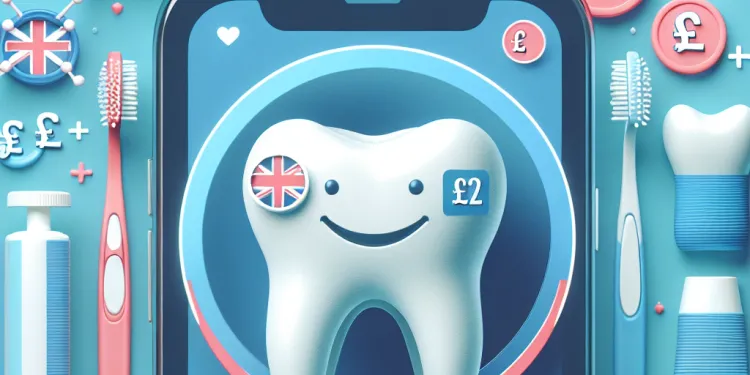
Find Help
More Items From Ergsy search
-

Are all dental appointments free on the NHS?
Relevance: 100%
-
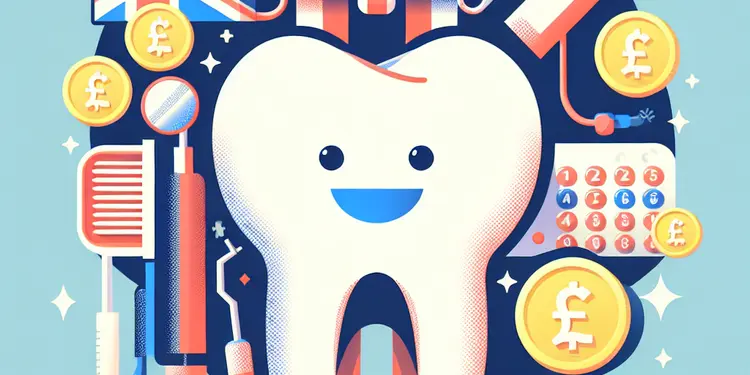
Can children get free NHS dental care?
Relevance: 74%
-
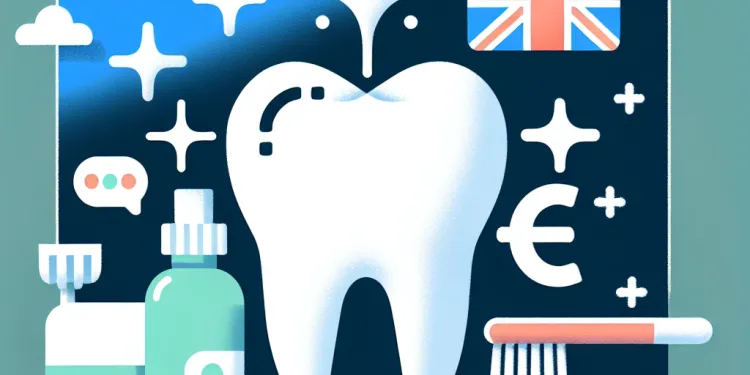
How do I know if I'm eligible for free NHS dental care?
Relevance: 71%
-
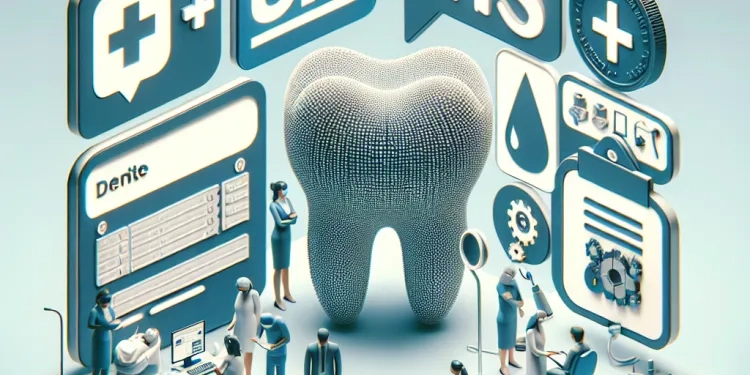
What happens if I miss my NHS dental appointment?
Relevance: 69%
-
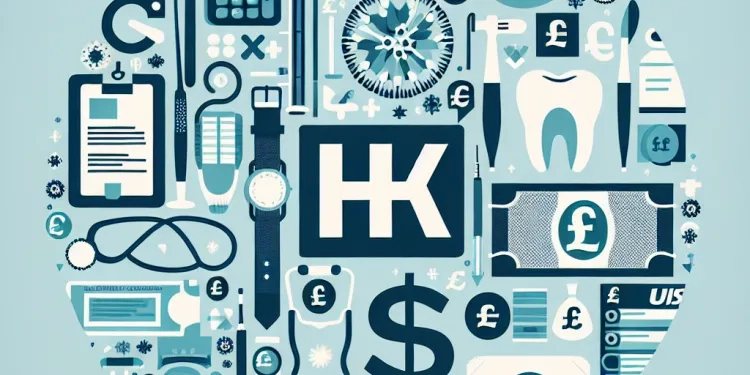
What should I bring to my NHS dental appointment?
Relevance: 68%
-

Can I get an emergency NHS dental appointment?
Relevance: 67%
-
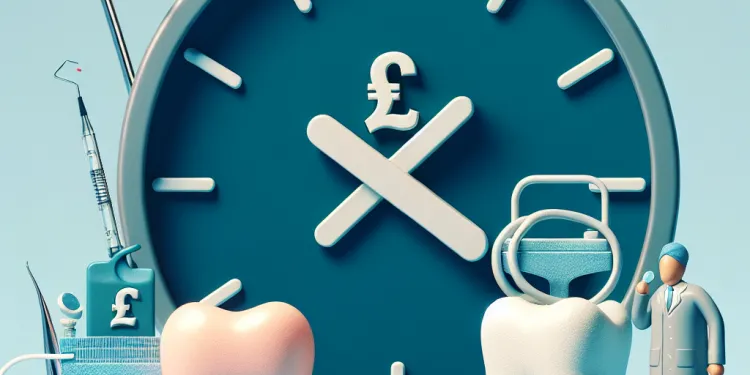
How long will I have to wait for an NHS dental appointment?
Relevance: 66%
-
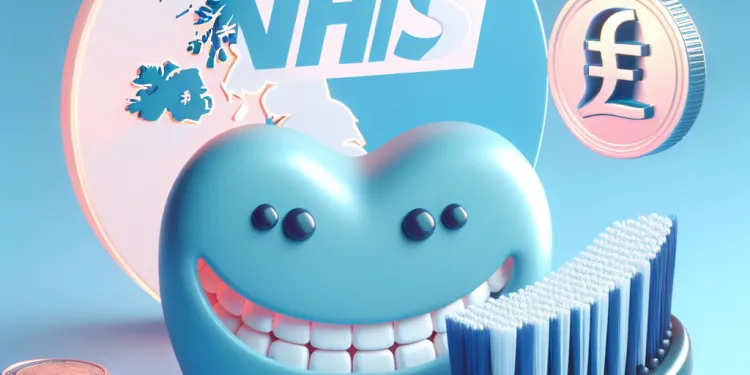
Can I get a dentist appointment on the NHS?
Relevance: 63%
-
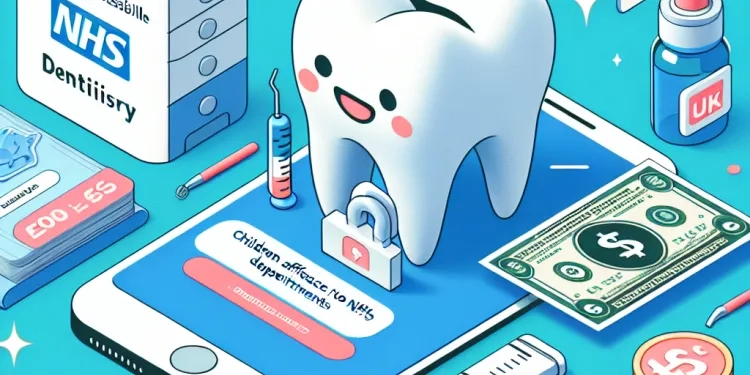
Can children get NHS dentist appointments?
Relevance: 60%
-

Are there any extra charges for NHS dental treatments?
Relevance: 56%
-
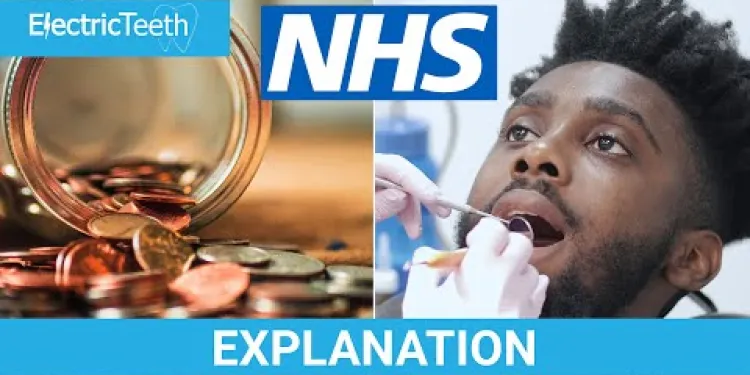
NHS Dental Charges Explained
Relevance: 54%
-
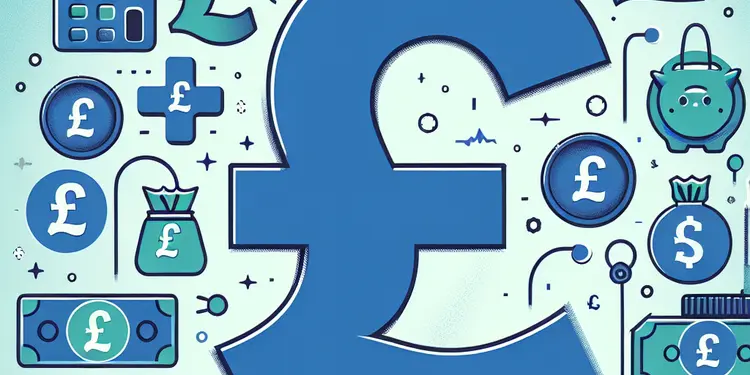
Are NHS dental charges different across the UK?
Relevance: 50%
-
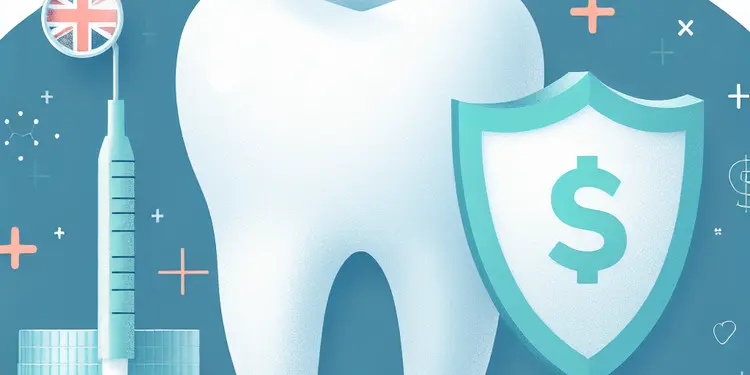
What treatments are covered by the NHS dental services?
Relevance: 49%
-
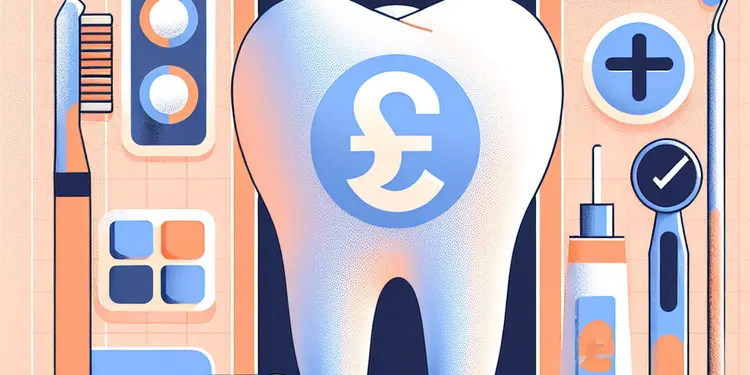
How much will I have to pay for NHS dental treatment?
Relevance: 47%
-
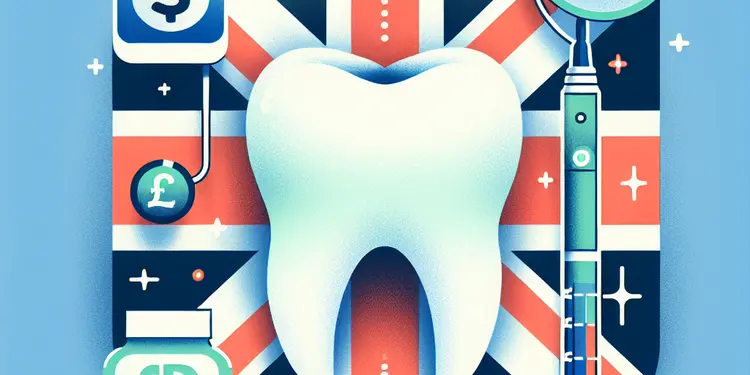
What languages do NHS dental clinics typically support?
Relevance: 46%
-

How often should I have a dental check-up on the NHS?
Relevance: 46%
-

How can I find an NHS dentist for an appointment?
Relevance: 46%
-

What are 'free sugars' and why should they be limited?
Relevance: 44%
-

Is sedation available during NHS dental treatments?
Relevance: 44%
-
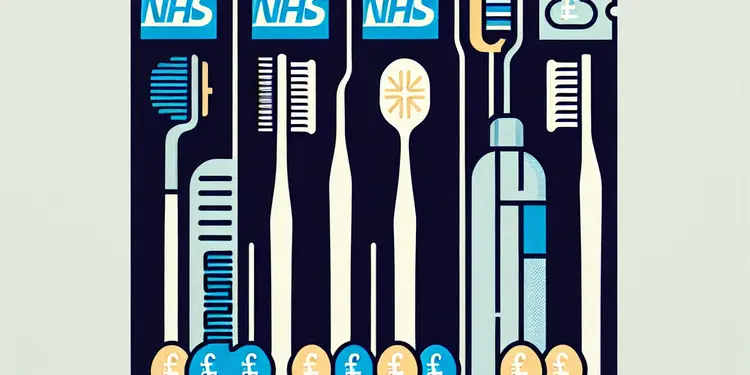
Are there waiting lists for NHS dental treatment?
Relevance: 44%
-
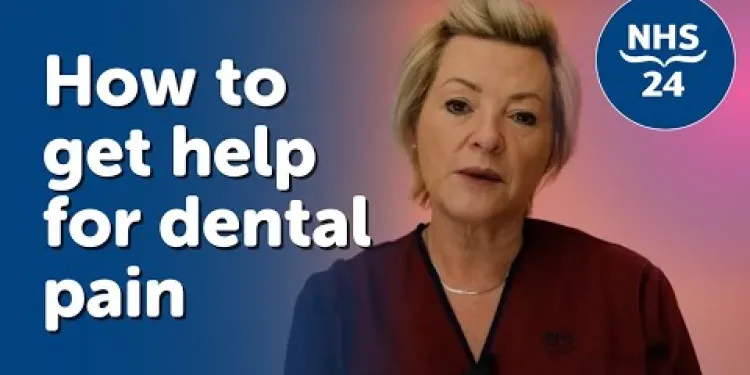
NHS 24 | How to get help for dental pain
Relevance: 43%
-
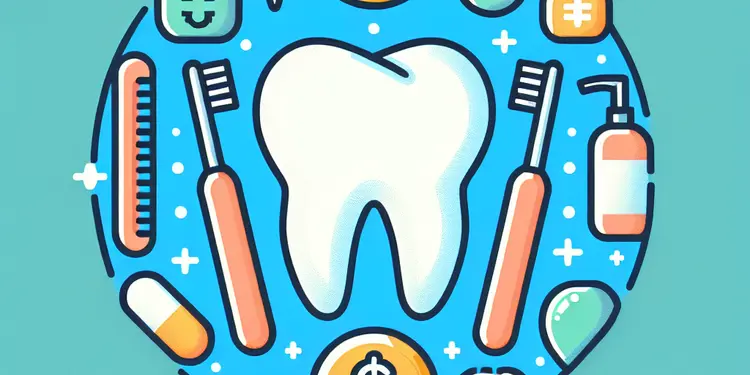
What if I need urgent dental care?
Relevance: 42%
-
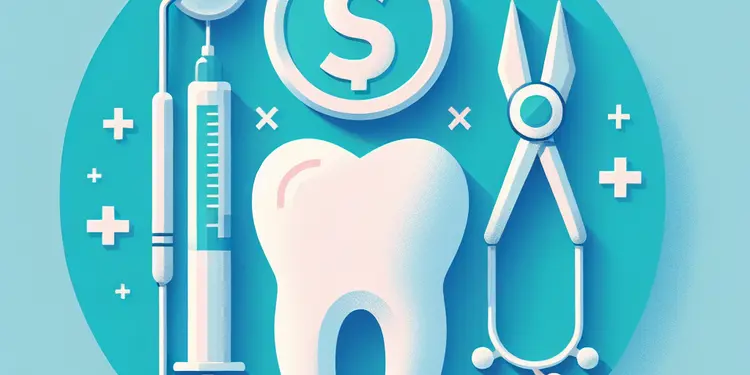
Do I need to be a registered patient to get emergency NHS dental care?
Relevance: 40%
-
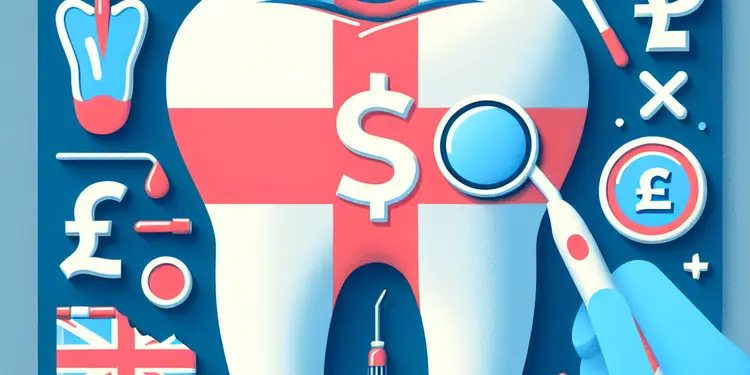
What if I'm not satisfied with my NHS dental treatment?
Relevance: 39%
-
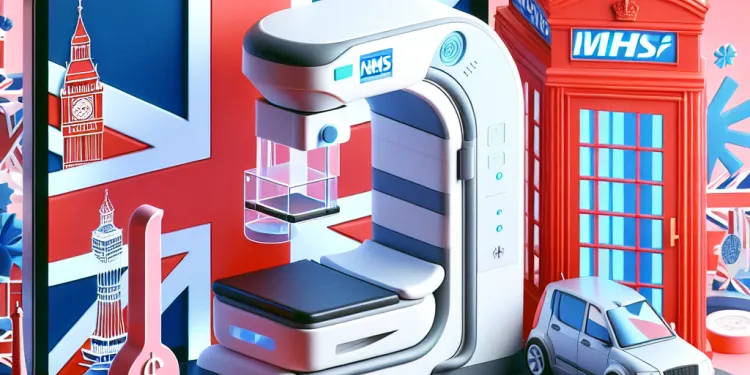
Are mammograms free on the NHS?
Relevance: 39%
-

What treatments are covered by the NHS dental service?
Relevance: 39%
-
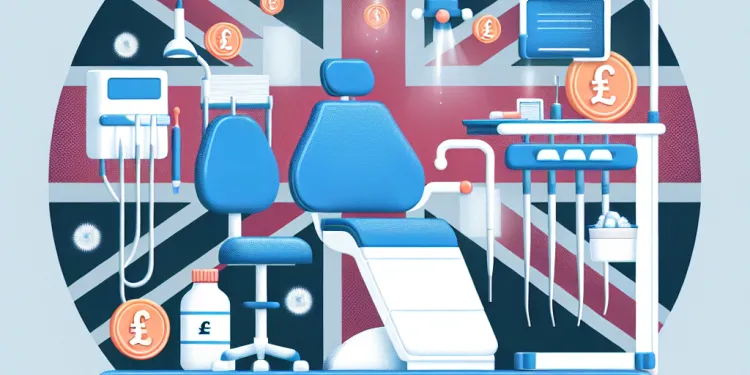
Will Brexit affect my access to NHS dental treatments?
Relevance: 39%
-
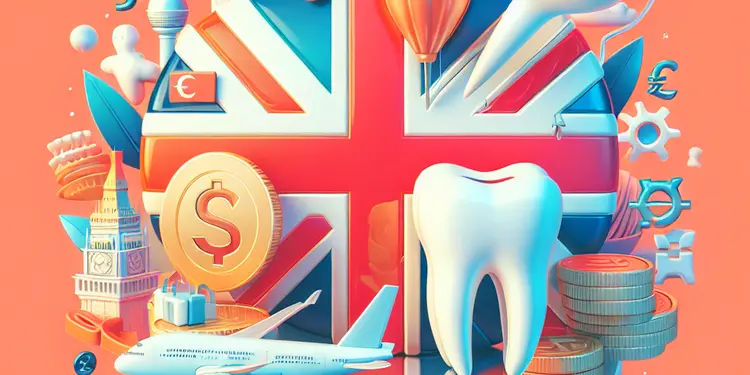
Is it safe to get dental work done in Turkey?
Relevance: 39%
-

How do I book an appointment for the flu vaccine?
Relevance: 38%
-
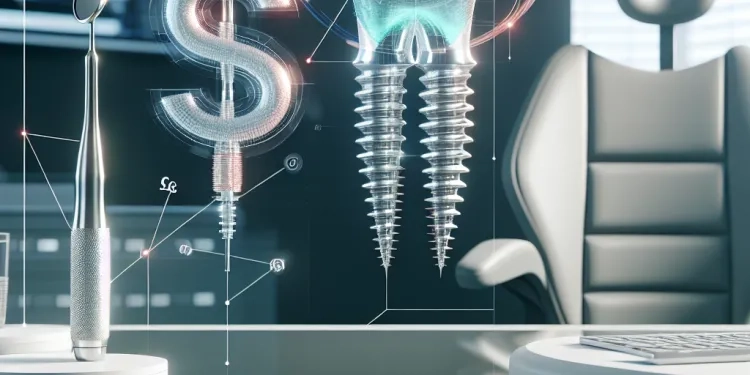
Can I get dental implants on the NHS?
Relevance: 38%
-
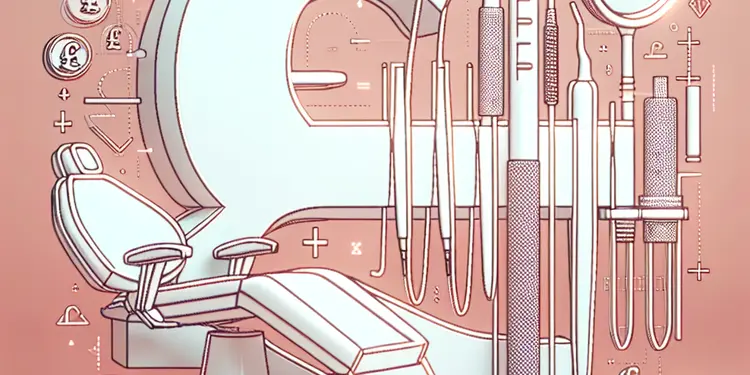
Can I use private dental services if I'm on the NHS list?
Relevance: 38%
-
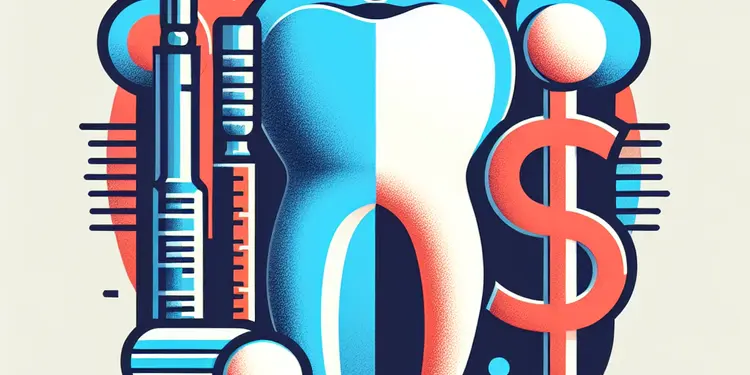
What is the role of dental sealants in preventing tooth decay?
Relevance: 37%
-
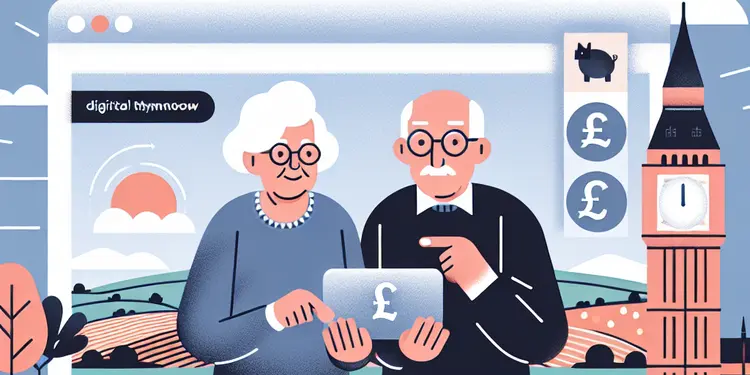
Are there free online resources for pension advice?
Relevance: 37%
-
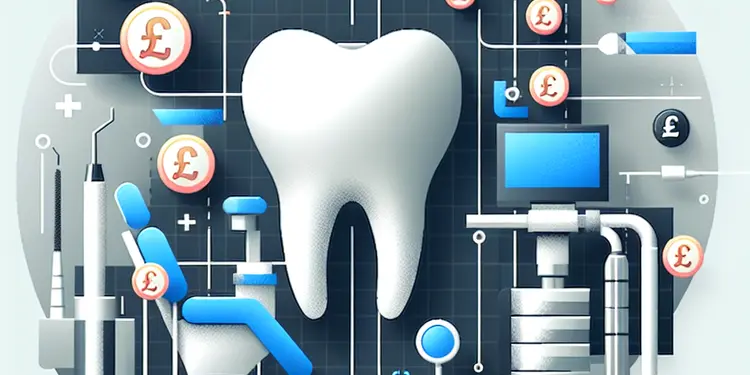
Can I get cosmetic dental treatment on the NHS?
Relevance: 37%
-
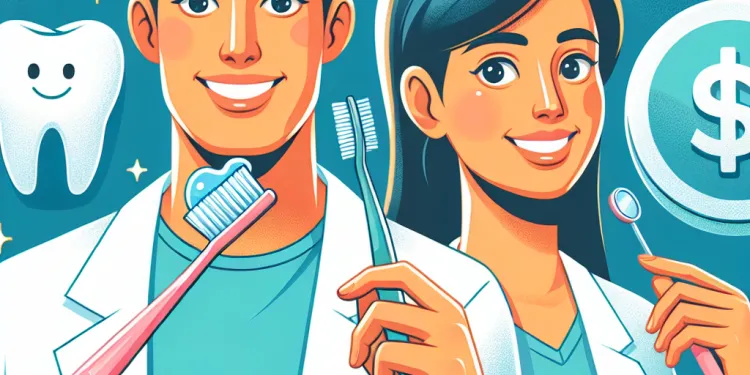
Dental Health: Tips for All Ages
Relevance: 36%
-
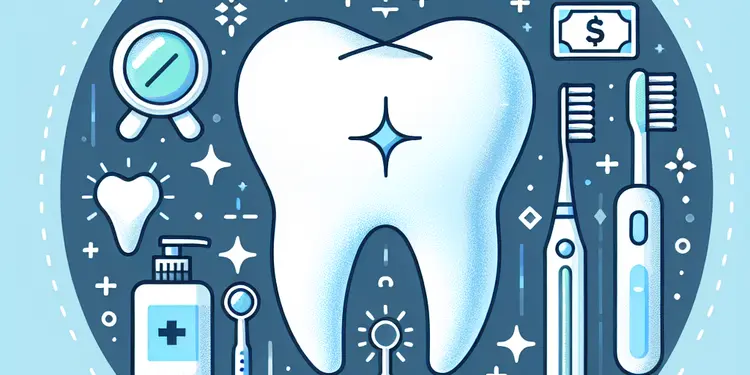
How do I choose the right dental clinic in Turkey?
Relevance: 36%
-
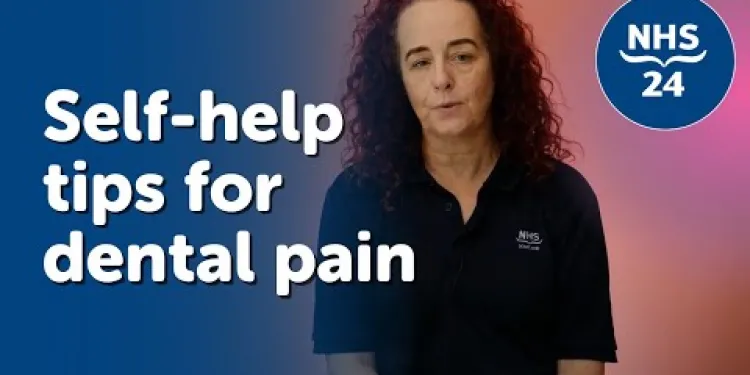
NHS 24 | Self-help tips for dental pain
Relevance: 36%
-
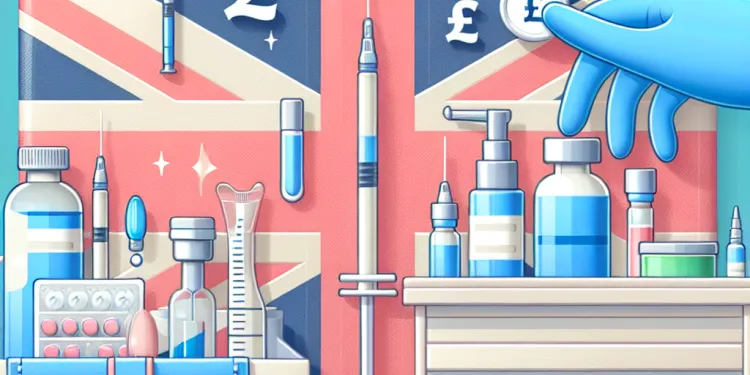
How should I prepare for a Botox appointment?
Relevance: 36%
-
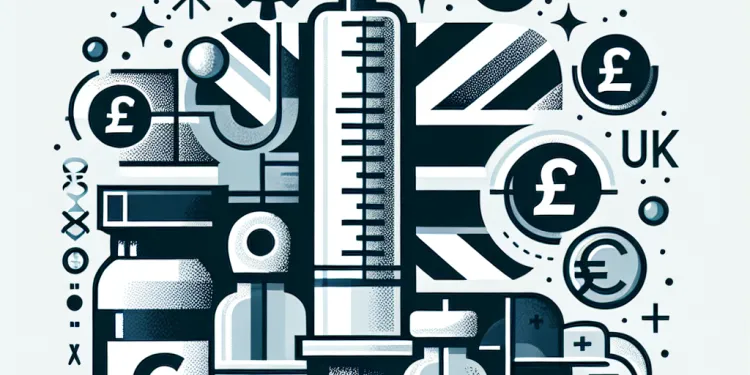
Is the flu vaccine free for everyone in the UK?
Relevance: 35%
-

Who appoints the Attorney General in the UK?
Relevance: 35%
Are All Dental Appointments Free on the NHS?
The National Health Service (NHS) in the UK provides a range of dental services to ensure the oral health of its citizens. However, not all dental appointments and treatments are free under the NHS. Understanding which services are covered and what costs may be incurred is important for patients seeking dental care.
NHS Dental Charges
NHS dental care is available to everyone, but most adults in England, Wales, Northern Ireland, and parts of Scotland will need to pay towards their treatment. The charges are set in bands, each covering different types of treatments. As of 2023, there are three main bands of charges in England and Wales:
Band 1: This covers an examination, diagnosis, and advice. If necessary, it also includes X-rays, a scale and polish, and planning for further treatment. The cost for Band 1 is £25.80 in England.
Band 2: In addition to the services under Band 1, this includes more complex procedures such as fillings, root canal treatment, and removing teeth. The charge for Band 2 is £70.70.
Band 3: This band covers more complex procedures like crowns, dentures, and bridges. The cost for Band 3 treatment is £306.80.
Who is Eligible for Free NHS Dental Care?
While many people are required to pay these charges, some individuals qualify for free NHS dental care due to specific circumstances. Those who are eligible include:
Children: All children under the age of 18, or under 19 and in full-time education, are entitled to free NHS dental care.
Pregnant Women and New Mothers: If you are pregnant or have had a baby in the last 12 months, you are eligible for free NHS dental treatment.
Income Support and Low-Income Groups: Individuals receiving Income Support, income-related Employment and Support Allowance, Income-based Jobseeker’s Allowance, or Pension Credit Guarantee Credit are exempt from charges.
Universal Credit Recipients: People on Universal Credit, under certain conditions, may also qualify for free NHS dental care.
Understanding Exemptions and Help
It is crucial for patients to ensure they meet the eligibility criteria for exemptions as set by the NHS. The NHS Low Income Scheme (LIS) can also offer partial help for those not automatically entitled to free treatment.
Always check with your dental practice or consult the NHS website for the most current guidance about NHS dental charges and exemptions. Each country within the UK may have slightly different policies and charges, so it's important to confirm the details based on your location.
Are All Dental Appointments Free on the NHS?
The NHS in the UK helps people take care of their teeth. But, not all visits to the dentist are free. Knowing which ones are free and which ones cost money is important if you need a dentist.
NHS Dental Charges
Everyone can use NHS dental services, but most adults in England, Wales, Northern Ireland, and some of Scotland have to pay for treatment. These payments are divided into groups called bands. As of 2023, there are three main bands in England and Wales:
Band 1: This is for a check-up and advice from the dentist. It can also include X-rays, cleaning, and planning more treatment if needed. It costs £25.80 in England.
Band 2: This includes Band 1 services plus more work like fillings, root canals, and removing teeth. It costs £70.70.
Band 3: This is for bigger treatments like crowns and dentures. It costs £306.80.
Who Can Get Free NHS Dental Care?
Some people do not have to pay for NHS dental care. These people include:
Children: Kids under 18, or under 19 if they are still in school, can get free dental care.
Pregnant Women and New Mothers: If you are expecting a baby or had a baby in the last year, you get free dental care.
Income Support and Low-Income Groups: People who receive certain benefits, like Income Support or Pension Credit, do not have to pay.
Universal Credit Recipients: Some people on Universal Credit also get free dental care.
Understanding Exemptions and Help
It is important to check if you can get free dental care from the NHS. The NHS Low Income Scheme can help if you do not qualify for free care but need help with costs.
Always ask your dentist or look at the NHS website to get the latest information on NHS dental charges and who can get free care. Rules might be different depending on where you live in the UK, so it's good to double-check.
Frequently Asked Questions
Are all dental appointments free on the NHS?
Not all dental appointments are free on the NHS. Certain groups of people, like children, pregnant women, and those on specific benefits, may be eligible for free treatment.
Who is eligible for free dental treatment on the NHS?
Children under 18, those under 19 in full-time education, pregnant women, and new mothers within 12 months of having a child, and people on certain benefits like Income Support are eligible.
What types of dental treatments are covered by the NHS?
The NHS covers necessary dental treatments to ensure good oral health, such as check-ups, X-rays, fillings, crowns, bridges, and dentures.
Are preventative treatments like dental cleanings free on the NHS?
Preventative treatments are covered by the NHS but may require a charge unless you are eligible for free treatment.
Do NHS dental charges apply to emergency appointments?
Yes, there is usually a charge for emergency NHS dental appointments unless you are exempt.
How are NHS dental charges structured?
NHS dental charges are structured in bands, with Band 1 covering basic treatments, Band 2 covering intermediate treatments, and Band 3 covering complex treatments.
What does Band 1 cover in NHS dental charges?
Band 1 covers check-ups, diagnosis (including X-rays), and advice on how to prevent future problems, including a scale and polish if necessary.
What does Band 2 cover in NHS dental charges?
Band 2 covers all the treatments in Band 1, plus additional services such as fillings, root canal treatment, and tooth extractions.
What does Band 3 cover in NHS dental charges?
Band 3 covers all the treatments in Bands 1 and 2, plus more complex procedures, such as crowns, dentures, and bridges.
Can I receive orthodontic treatment for free on the NHS?
Orthodontic treatment is free for eligible children under 18 based on the severity of the case, but it is not generally available to adults unless there is a significant clinical need.
How can I find an NHS dentist?
You can find an NHS dentist by using the NHS website to search for local practices accepting new NHS patients or by calling NHS 111 for assistance.
Can I refuse certain treatments on the NHS and choose private care for them?
Yes, you can choose to decline NHS treatments and opt for private dental care if you prefer.
What if I need specialist dental treatment through the NHS?
Specialist treatments may be available on the NHS if referred by your dentist, but not all specialist services are covered.
Do I need to pay upfront for NHS dental treatment?
Most NHS dentists require payment at the time of treatment unless you are eligible for free care.
How often should I have an NHS dental check-up?
The frequency of NHS dental check-ups depends on your oral health needs, typically every 6 to 24 months as advised by your dentist.
Are dental consultations on the NHS free?
Consultations are covered by the NHS, but may incur a Band 1 charge unless you are exempt.
Can I get cosmetic dental treatment on the NHS?
Cosmetic treatments are not usually covered by the NHS, which focuses on necessary treatments for oral health.
What happens if I miss an NHS dental appointment?
Missing appointments can lead to being removed from the practice's patient list. It's important to inform the practice if you cannot attend.
Can I switch from private to NHS dental care?
Yes, but you must ensure the practice you choose accepts NHS patients.
Are there waiting lists for NHS dental treatments?
There may be waiting lists for certain treatments depending on the demand and capacity of the practice.
Are all dentist visits free with the NHS?
When you go to the dentist with the NHS, you might have to pay. Some visits are free, but not all. It depends on what you need.
Here’s how to find out if it’s free:
- If you are a child under 18, it's free.
- If you're pregnant, it's free.
- Some people who get certain benefits don’t have to pay.
If you think you should get a free visit, ask your dentist. They will help you find out.
If you find reading hard, ask someone to read it to you. You can also use tools that read text out loud. This can make things easier to understand.
Not everyone gets free dentist visits with the NHS. But some people can get them for free. Kids, pregnant ladies, and people who get certain benefits might not have to pay.
Who can get free dental treatment from the NHS?
Some people can see the dentist for free with the NHS. Here is who might get it:
- Children under 18 years old.
- People under 19 in full-time education.
- Pregnant women or those who had a baby in the last 12 months.
- People getting certain benefits or tax credits.
Tip: If you need help, ask a friend or family member. You can also use a simple online tool to check if you can get free treatment.
Some people can get help. These people are:
- Children under 18 years old.
- People under 19 who go to school full-time.
- Pregnant women.
- New mothers who had a baby less than 12 months ago.
- People who get special money help called Income Support.
It's good to ask a grown-up if you need help to understand. You can also use tools like a dictionary or ask someone to explain it in a simple way.
What dental treatments can you get with the NHS?
The NHS can help you take care of your teeth. They have treatments that can fix problems or keep your teeth healthy. Here are some:
- Check-ups: The dentist looks at your teeth to make sure they are okay.
- Cleaning: The dentist cleans your teeth to remove dirt.
- Fillings: If you have a hole in a tooth, the dentist can fix it.
- Taking out a tooth: If a tooth is bad, the dentist can take it out.
- False teeth: If you lose teeth, the dentist can give you new ones.
If you need help understanding or remembering, you can:
- Ask a friend or family member to go with you.
- Call the dentist if you have questions.
The NHS helps keep your teeth healthy. They help pay for important things like dentist check-ups, X-rays, fillings, crowns, bridges, and dentures.
Do you get free teeth cleaning with the NHS?
Teeth cleaning can help stop problems. Is it free with the NHS?
Try asking a dentist or visiting the NHS website for help. Use pictures and videos if they help you understand better.
The NHS can help stop you from getting sick. Sometimes, you might have to pay, but some people can get it for free. There are tools that can help you understand this better. You can ask a nurse or doctor for help, or use pictures and videos to learn more.
Do you have to pay for an emergency dentist visit on the NHS?
Yes, you usually have to pay money for emergency NHS dentist visits unless you do not have to pay for some reason.
How do NHS dentist costs work?
When you go to the dentist with the NHS, you might need to pay some money. The money you pay is called a "charge".
There are three different amounts you might pay. They are called "bands".
- Band 1: This is for a check-up, x-rays, and a simple clean.
- Band 2: This is for things like fillings, taking out a tooth, or fixing broken teeth.
- Band 3: This is for bigger treatments, like making false teeth or crowns.
Some people do not have to pay. You might not have to pay if you are under 18, or if you get help from the government for other things. You can ask the dentist if you don’t know.
If you find it hard to remember things, you can bring someone to help you understand. A friend or family member can come with you.
NHS dental costs are grouped into bands. Band 1 is for simple treatments. Band 2 is for middle-level treatments. Band 3 is for difficult treatments.
What do you get with Band 1 NHS dental charges?
Band 1 covers basic dental care. This means:
- Check-up: The dentist looks at your teeth and mouth.
- Advice: The dentist tells you how to keep your teeth healthy.
- Cleaning: The dentist will clean your teeth if you need it.
- X-rays: You might get an X-ray to look at your teeth better.
To help remember, you can:
- Use a checklist to keep track of your dental visits.
- Ask your dentist to explain things to you.
- Use pictures or videos to learn more about dental visits.
Band 1 means you go to the dentist for a check-up. The dentist will look at your teeth and see if there are any problems. If needed, they will take pictures of your teeth called X-rays.
The dentist will also give you advice on how to keep your teeth healthy. If your teeth need cleaning, they will clean them too.
What do you get with Band 2 in NHS dentist fees?
Band 2 includes everything in Band 1. It also covers things like fillings, cleaning inside a tooth, and taking out teeth.
What Does Band 3 Cost Cover in NHS Dentists?
Band 3 cost is for big dentist work:
- New Teeth: Getting new teeth made.
- Special Fixes: Fixing teeth with strong materials.
If you want help reading, you can use:
- Audio Tools: Listen to words and follow along.
- Picture Helpers: Look at pictures that show what the words mean.
Band 3 includes everything in Band 1 and Band 2. It also includes bigger treatments like crowns, dentures, and bridges.
Can I get free orthodontic treatment with the NHS?
Orthodontic treatment helps straighten your teeth. You might get it for free with the NHS if you really need it. This is usually for kids under 18. An NHS dentist can tell you if you can get it for free.
If you find reading hard, ask someone to read it with you. You can also use a screen reader or text-to-speech tool to help.
If you are under 18 and need braces, you might get them for free if your teeth need a lot of work. Adults usually have to pay for braces unless there is a big problem with their teeth.
How can I find an NHS dentist?
Do you need help finding an NHS dentist? Here's how you can do it:
- Online Search: Go to the NHS website. You can type in your postcode to find a dentist near you.
- Call for Help: You can call NHS Direct at 111. They can help you find a dentist.
- Local Support: Visit your local health center. They can give you a list of dentists.
If you find reading hard, try using these tools:
- Text-to-Speech: Use a tool that can read the text out loud for you.
- Ask a Friend: A friend or family member can help you read and understand the steps.
Finding a dentist can be easy with the right help!
You can find an NHS dentist by using the NHS website. Look for local dentists taking new NHS patients. You can also call NHS 111 for help.
Can I say no to NHS treatments and pick private ones instead?
Yes, you can say no to NHS dental care and choose to pay for private dental care if you like.
What can I do if I need special dental care on the NHS?
If you need special care for your teeth, the NHS can help.
Here is what you can do:
- Talk to your dentist. They can tell you what care you need.
- If they can't help, they will send you to a specialist.
- Make sure to ask questions if you do not understand. You can always ask for more help.
Some tips:
- Write down your questions before you go to the dentist.
- Bring a friend or family member to help remember the information.
- Use pictures or drawings to help understand the treatment.
You might be able to get special treatments from the NHS if your dentist sends you. But not all special treatments are covered by the NHS.
Do I have to pay before I see the NHS dentist?
Here are some tips to help:
- Ask the dentist’s office if you need to pay before your treatment.
- If you are not sure, bring some money just in case.
- It is okay to ask questions. You can ask for help if you need it.
Most NHS dentists ask for money when they treat your teeth unless you can get free care.
How often should I go to the dentist?
It is important to see the dentist regularly. Most people need to go to the dentist once or twice a year.
The dentist will tell you when you should come back. It might be sooner if you have problems with your teeth.
If you find reading difficult, you can ask someone to read this to you.
How often you go to the NHS dentist depends on how healthy your teeth and gums are. The dentist usually tells you to come back every 6 months to 2 years.
Do you have to pay for a dentist visit on the NHS?
Sometimes, visiting the dentist is free with the NHS. Other times, you might have to pay.
Here’s when it can be free:
- Kids under 18 go free.
- If you are 18 and still in school, it’s free.
- Some people on certain benefits get free visits.
To find out, you can ask a grown-up or check online. You can also ask the dentist before your visit.
Tools like pictures and asking someone to help can make it clearer.
Going to talk to the doctor is paid for by the NHS. But sometimes you might have to pay a little bit of money, called a Band 1 charge, unless you don't have to pay at all.
Helpful Tip: Ask someone to help you find out if you need to pay or if you don't have to.
Can I get cosmetic dental treatment on the NHS?
Cosmetic dental treatment means making your teeth look better. It is about looks, not health.
The NHS is the National Health Service in the UK. Most of the time, the NHS gives dental treatment for health reasons. This means they help keep your mouth and teeth healthy.
Sometimes, the NHS gives cosmetic dental treatment. But this is not common.
If you want cosmetic dental treatment, you might need to pay for it yourself. Ask your dentist to find out more.
It can help to bring someone with you when you go to the dentist. They can help you ask questions and remember the answers.
Most of the time, the NHS does not pay for cosmetic treatments. The NHS pays for treatments that help keep your mouth healthy.
What if I miss my NHS dentist appointment?
If you miss your dentist appointment, tell the dentist as soon as you can.
Here is what you can do:
- Call or visit the dentist's office to say sorry.
- Ask if you can make a new appointment.
Sometimes, if you miss too many appointments, the dentist might not see you anymore.
Here are some tips to help you remember your appointment:
- Write it on a calendar at home.
- Set a reminder on your phone.
- Ask someone to help remind you.
If you miss a visit with your doctor a lot, they might not be your doctor anymore. It's very important to tell the doctor’s office if you can't come.
Can I change from a private dentist to an NHS dentist?
Yes, you can change from seeing a private dentist to an NHS dentist. Here are some steps to help you:
- Look for a dentist that does NHS work. You can search online or call NHS services for help.
- Ask the dentist if they take new NHS patients. Sometimes you might have to wait for a spot.
- Talk to your current dentist if you need your dental records. This can help your new dentist know about your teeth.
You can use tools like online search engines or phone apps to find NHS dentists near you. Don't be afraid to ask a friend or family member for help!
Yes, but make sure the place you pick takes patients from the NHS.
Do you have to wait for NHS dental care?
Sometimes you might have to wait to see a dentist with the NHS. This is called a waiting list.
Here are some things you can do:
- Call the dentist to ask how long you might wait.
- Use a calendar to mark your appointment day.
- Ask someone to help you with reminders.
Sometimes, you might have to wait for certain treatments. This is because a lot of people might want it and the practice can only take in so many at once.
If you find waiting difficult, you could:
- Ask someone to explain how long you might wait.
- Use a calendar to mark the days.
- Talk to someone if you feel worried about waiting.
Useful Links
This website offers general information and is not a substitute for professional advice.
Always seek guidance from qualified professionals.
If you have any medical concerns or need urgent help, contact a healthcare professional or emergency services immediately.
Some of this content was generated with AI assistance. We’ve done our best to keep it accurate, helpful, and human-friendly.
- Ergsy carfully checks the information in the videos we provide here.
- Videos shown by Youtube after a video has completed, have NOT been reviewed by ERGSY.
- To view, click the arrow in centre of video.
- Most of the videos you find here will have subtitles and/or closed captions available.
- You may need to turn these on, and choose your preferred language.
- Go to the video you'd like to watch.
- If closed captions (CC) are available, settings will be visible on the bottom right of the video player.
- To turn on Captions, click settings .
- To turn off Captions, click settings again.
More Items From Ergsy search
-

Are all dental appointments free on the NHS?
Relevance: 100%
-

Can children get free NHS dental care?
Relevance: 74%
-

How do I know if I'm eligible for free NHS dental care?
Relevance: 71%
-

What happens if I miss my NHS dental appointment?
Relevance: 69%
-

What should I bring to my NHS dental appointment?
Relevance: 68%
-

Can I get an emergency NHS dental appointment?
Relevance: 67%
-

How long will I have to wait for an NHS dental appointment?
Relevance: 66%
-

Can I get a dentist appointment on the NHS?
Relevance: 63%
-

Can children get NHS dentist appointments?
Relevance: 60%
-

Are there any extra charges for NHS dental treatments?
Relevance: 56%
-

NHS Dental Charges Explained
Relevance: 54%
-

Are NHS dental charges different across the UK?
Relevance: 50%
-

What treatments are covered by the NHS dental services?
Relevance: 49%
-

How much will I have to pay for NHS dental treatment?
Relevance: 47%
-

What languages do NHS dental clinics typically support?
Relevance: 46%
-

How often should I have a dental check-up on the NHS?
Relevance: 46%
-

How can I find an NHS dentist for an appointment?
Relevance: 46%
-

What are 'free sugars' and why should they be limited?
Relevance: 44%
-

Is sedation available during NHS dental treatments?
Relevance: 44%
-

Are there waiting lists for NHS dental treatment?
Relevance: 44%
-

NHS 24 | How to get help for dental pain
Relevance: 43%
-

What if I need urgent dental care?
Relevance: 42%
-

Do I need to be a registered patient to get emergency NHS dental care?
Relevance: 40%
-

What if I'm not satisfied with my NHS dental treatment?
Relevance: 39%
-

Are mammograms free on the NHS?
Relevance: 39%
-

What treatments are covered by the NHS dental service?
Relevance: 39%
-

Will Brexit affect my access to NHS dental treatments?
Relevance: 39%
-

Is it safe to get dental work done in Turkey?
Relevance: 39%
-

How do I book an appointment for the flu vaccine?
Relevance: 38%
-

Can I get dental implants on the NHS?
Relevance: 38%
-

Can I use private dental services if I'm on the NHS list?
Relevance: 38%
-

What is the role of dental sealants in preventing tooth decay?
Relevance: 37%
-

Are there free online resources for pension advice?
Relevance: 37%
-

Can I get cosmetic dental treatment on the NHS?
Relevance: 37%
-

Dental Health: Tips for All Ages
Relevance: 36%
-

How do I choose the right dental clinic in Turkey?
Relevance: 36%
-

NHS 24 | Self-help tips for dental pain
Relevance: 36%
-

How should I prepare for a Botox appointment?
Relevance: 36%
-

Is the flu vaccine free for everyone in the UK?
Relevance: 35%
-

Who appoints the Attorney General in the UK?
Relevance: 35%


